Diversions - WW5
Composer: Kassal, James
Publisher: TrevCo
Edition: 71706
$28.00
Diversions
for woodwind quintet: flute, oboe, clarinet, horn, and bassoon
by James Kassal - American composer
1. Seven for Five
2. Dark and Cool
3. Nostalgia
4. City Strut
5. Chromatic Interlude
6. Waltz
ABOUT THE MUSIC
Diversions is a collection of six wildly diverse and totally unrelated musical themes that range from whimsical to quirky to toe-tapping. This piece is musical fun and should please any audience. The six movements take about a half hour to play and is intended to be half of a performance program.
Seven for Five is written in 7/4 meter for five instruments, hence its title. It begins with the group counting off “7, 4, 5” in unison to start the piece with a brief flourish that fades to a simple theme carried by the bassoon. Soon, joined by the horn, clarinet and then upper winds, the music becomes quirky and gradually increases in complexity. It becomes nearly chaotic before reverting to previous themes and ending with a flourish similar to the opening.
“Dark and Cool” starts with a dark, mysterious theme played by bassoon and flute in unison. The theme has no apparent meter and is passed to the other three instruments by the bassoon and flute fading out while the horn, clarinet and English horn fade in to change the tonal “color’. The full ensemble then creates an ominous mood while the music gradually increases in complexity. But then a cool jazz theme emerges. Played by the clarinet, this theme gradually develops and expands leading to numerous short jazz riffs, each being a duet. The original dark theme eventually returns but with the cool jazz feeling persisting to an understated conclusion.
“Nostalgia” is a nod to the big band era of the 1940s. It features the horn extensively and follows the form of bygone days where a vocalist presents the main themes then yields the spotlight to an instrumental soloist who eventually returns it to the vocalist to complete the song.
“City Strut” is a bit of a non sequitur. It is meant to convey the feeling of strutting about a bustling European city but involves a theme that’s reminiscent of an American country hoedown. It opens with the sound of an ambulance passing by, and contains several instances of an audible “Walk Signal” and car horns blaring. It is quirky, toe-tapping music end to end.
“Chromatic Interlude” is an experiment with harmonies that modulate chromatically. It is a flow of harmony without a melody. Each instrument, from note to note, changes pitch by either a half step or not all. Short in duration, the music gradually rises in pitch and volume to a midpoint climax then recedes to a conclusion where complex, often dissonant harmonies resolve to a satisfying final chord.
“Waltz” brings the program to a lively conclusion. Imagine a large ballroom full of strangers, each looking to find a connection with someone through dance and changing partners frequently. Beginning at a moderate tempo the music introduces several themes as it progresses. A slower center section brings some serenity but gives way to more energetic and quirky music. The tempo gradually becomes more and more lively nearly resembling a scherzo before coming to a quirky end.
for a synthesized recording of this piece, click on this link https://www.youtube.com/@jameskassal2543

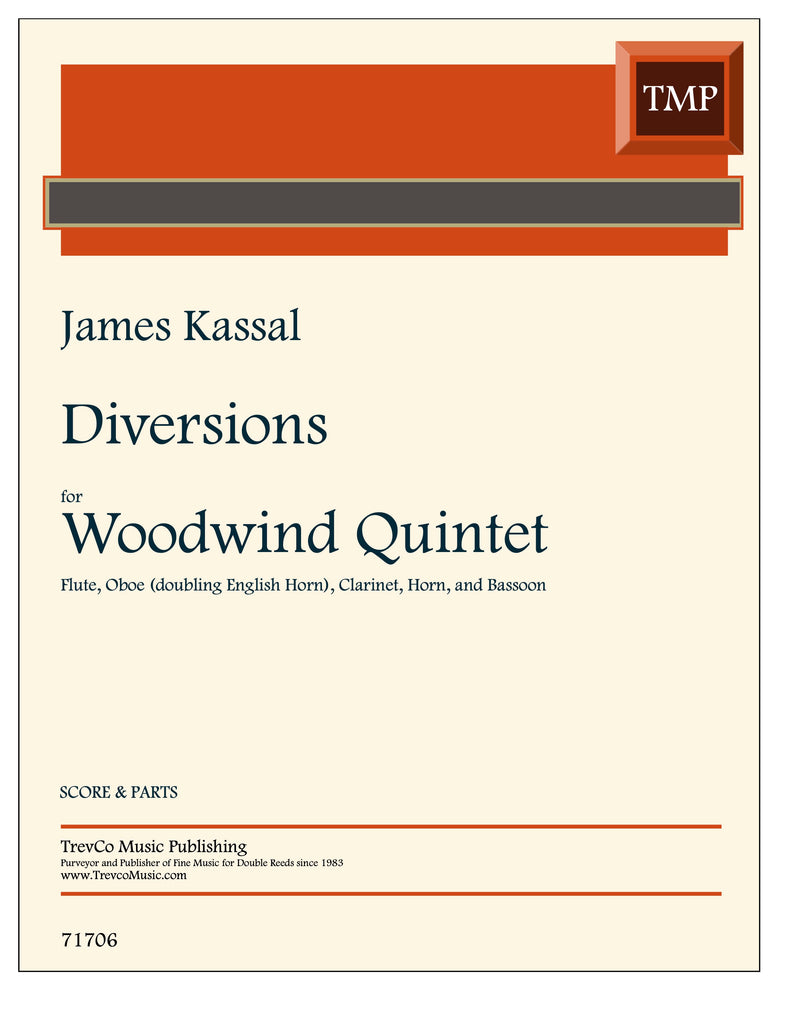
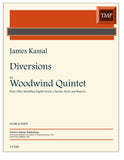
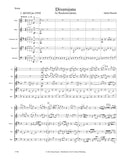
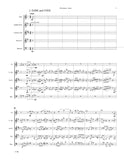
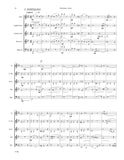
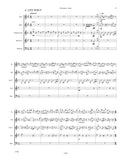
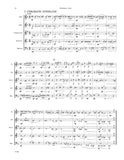
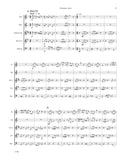
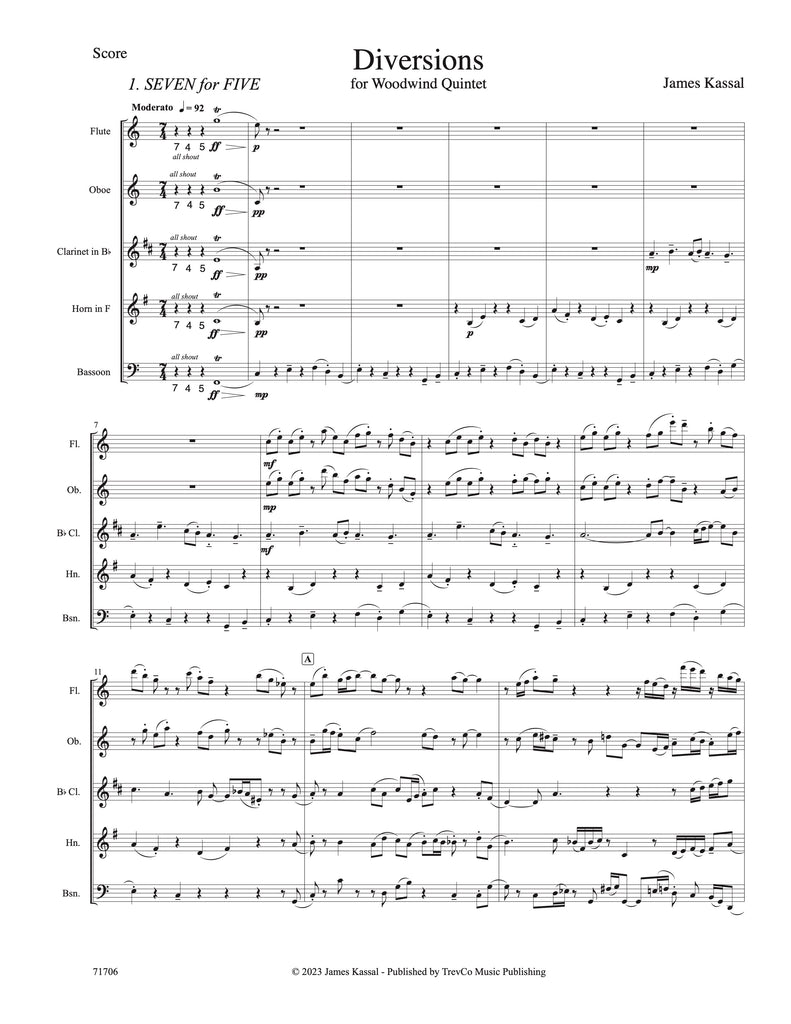
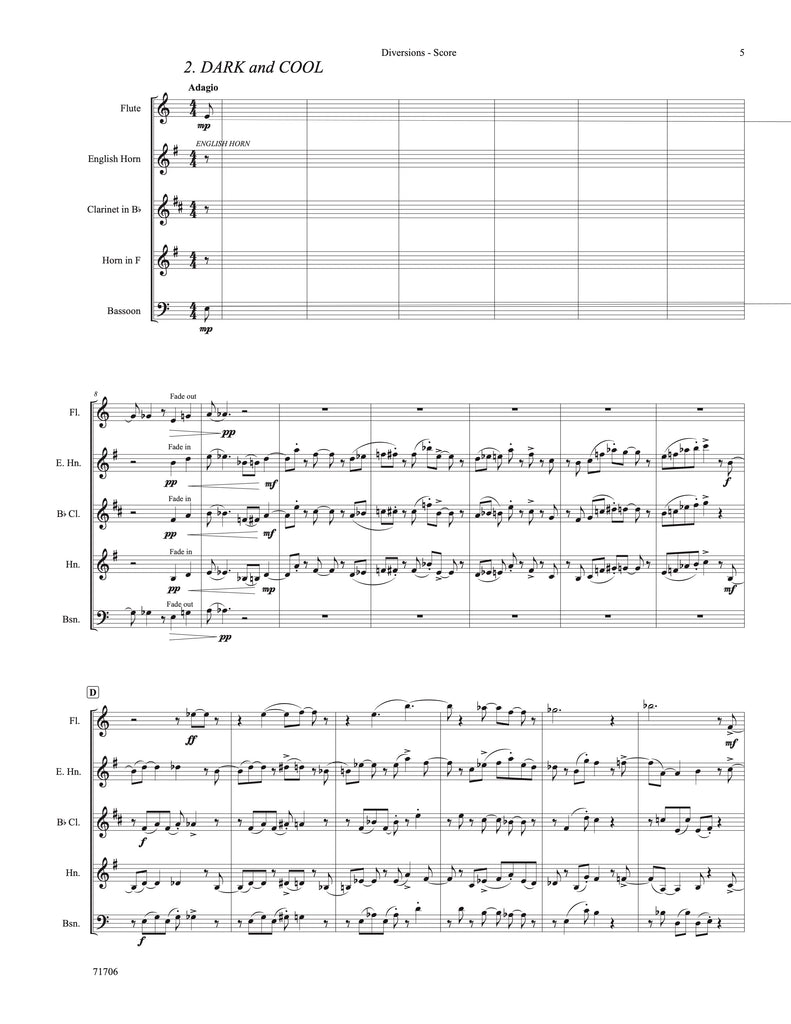
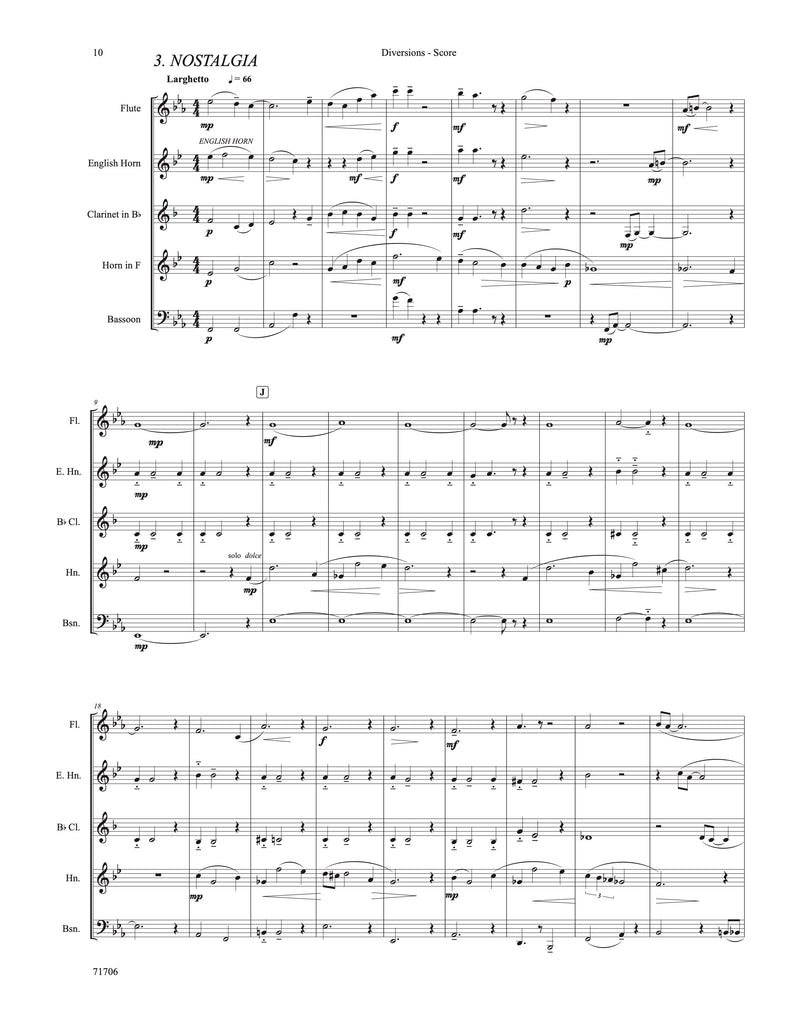
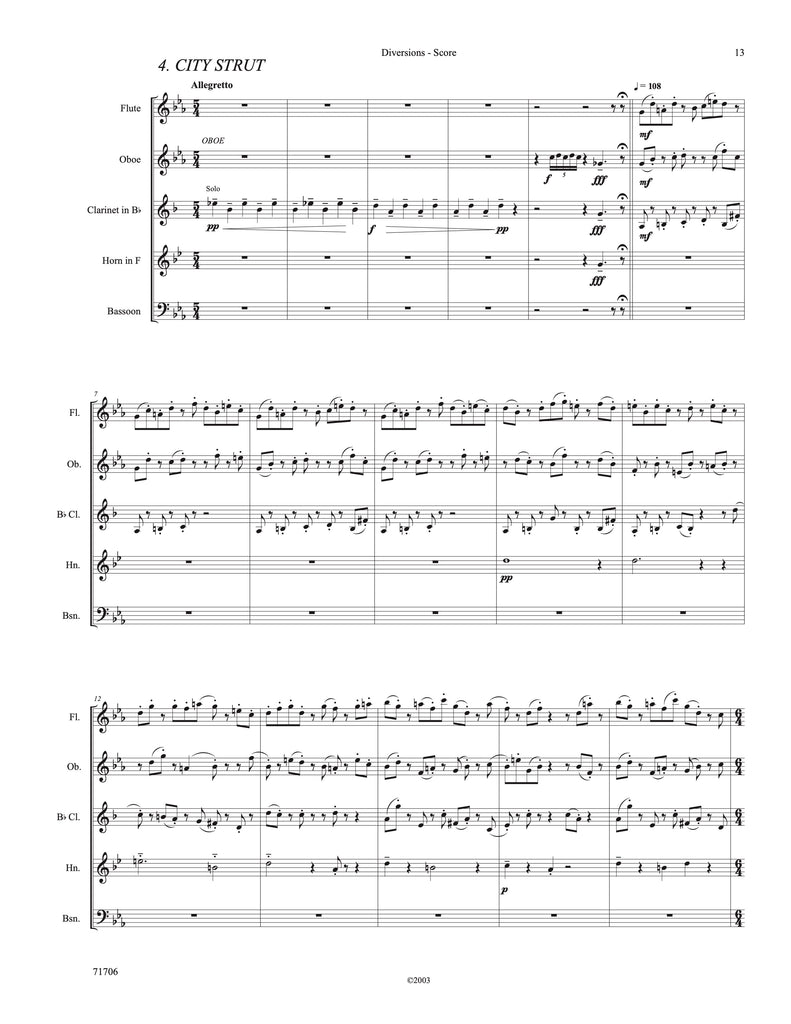
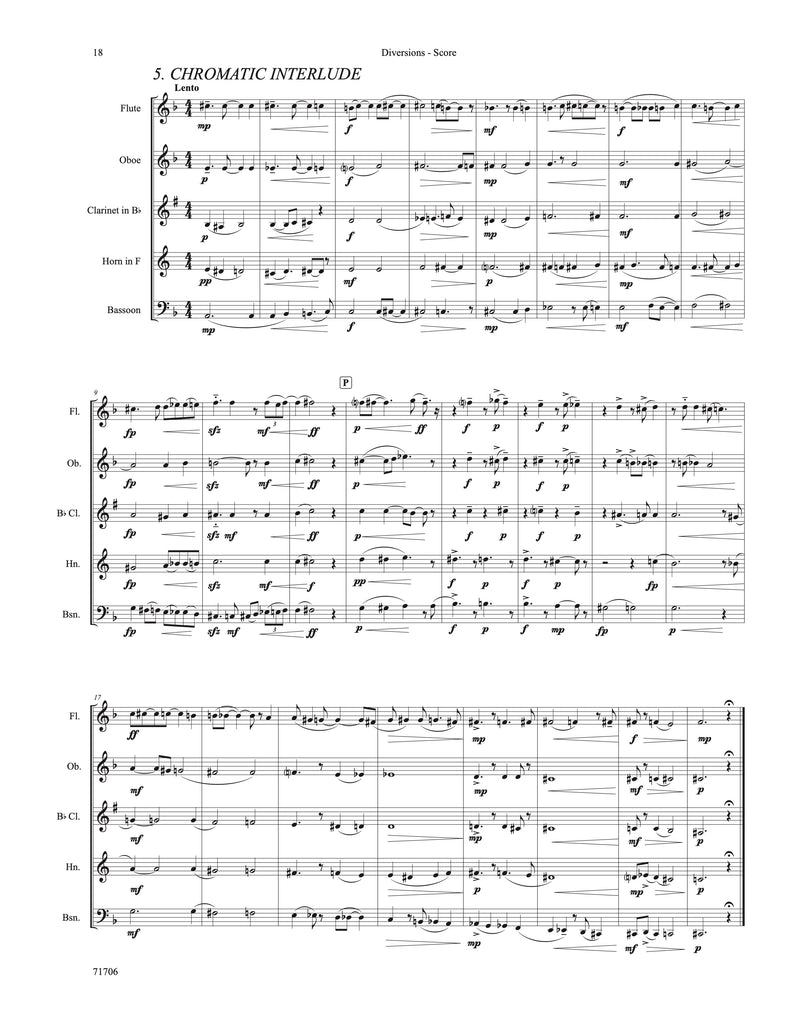
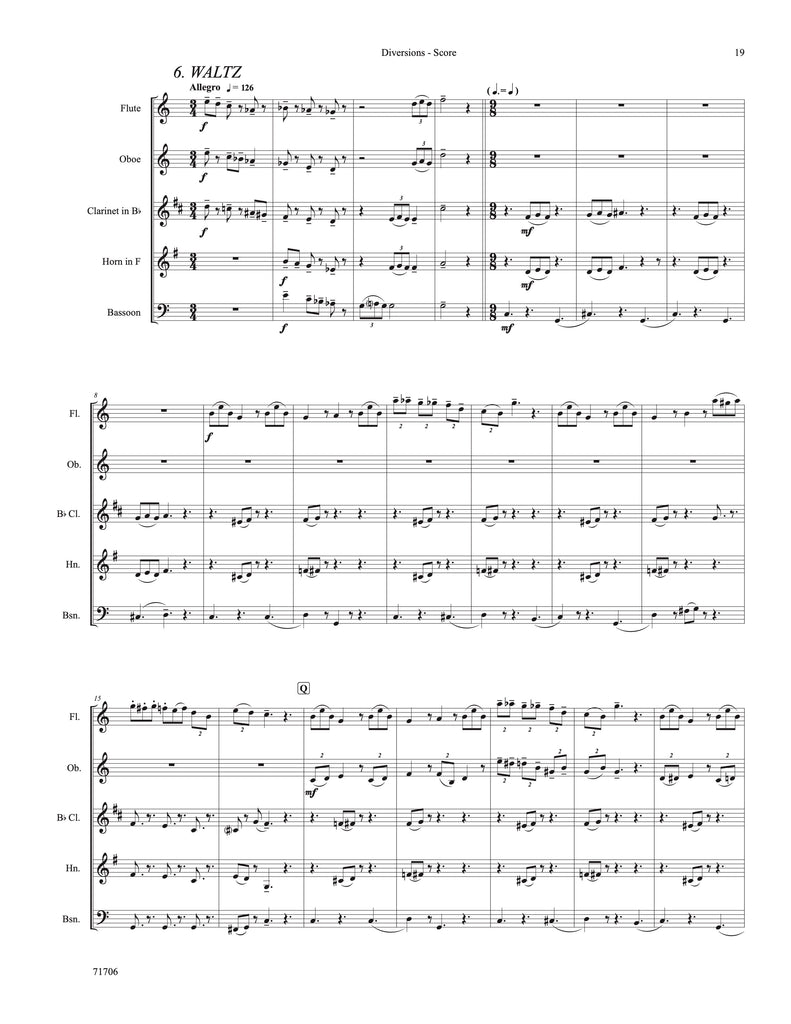
Share this item: